

- Apiculture & Beekeeping - excellent publications of the NC State Extension
- Apis Newsletters - Apis Information Resource News, a comprehensive listing of beekeeping events around the country and around the globe
- Bee Informed Partnership - messages from the Bee Informed Partnership
- Beekeeping in Tennessee - an excellent guide for beginning and experienced beekeepers and my recommendation for all “prospective” and “beginning” beekeepers, Zach- webmaster. See Hive Management calendar on pages 40-42.
- Catch the Buzz - subscribe to Bee Culture magazine's free honeybee news service
- Field Guide to Honey Bees and Their Maladie - an informative guide offered by PennState University Extension
- Pink Pages of Wisdom - Essays written by the late George W. Imirie, Jr., Certified EAS Master Beekeeper, on all topics concerning the Bee-keeper and the Bee-haver.
Stay informed on the news that affects you as a beekeeper with this collection of newsletters and publications from various renown apiculturists and organizations around the country and globe.
- All About Bees - Learn and test your knowledge about honeybees.
- American Bee Journal - read beekeeping articles online or subscribe.
- Appi Bees Services, Ltd - the makers of the HiveSmartHQ “ad-free” software app for beekeepers. Manage your apiary with data about maintenance, production, sales, etc. Below are links to paper forms for those who are not digitally connected.
- Beekeeping- Flowers to Harvesting, per Amie and Sam at McDowell Honey Bees
- For the young “wanna-bee” enthusiast- Kids and Bees
- Beekeeping Safety - learn about honeybee safety and avoiding stings.
- Bee Spotter - creating a “bee-friendly” garden. This link is associated with the University of Illinois
- Center for Honeybee Research - located in Asheville, NC - their FaceBook site.
- Dantant- a PDF of questions and answers about using “oxalic acid” to manage varroa mites.
- EPA - Pollinator Protection, Advisory on the Applicability of FIFRA and FFDCA for Substances to Control Varroa Mites on Beehives.
- Haywood County Extension Center - located in Waynesville, NC
- Haywood County Library - books about beekeeping.
- Help the Honeybee - a PDF file listing pesticides and toxins to avoid if you have honeybees in your yard.
- Honey Bee Health Coalition - contains information for managing healthy bee hives.
- NC Cooperative Extension: Growing Small Farms-Pollinator Conservation Guide (Debbie Roos)
- NCDA Apiary Services - Plant Industry - Plant Protection Section Apiary Services
- North Carolina Bee and Honey Act of 1977, Article 55 - legal information about beekeeping in North Carolina
- NC Plant Hardiness Zone Map - see how temperature affects your area
- NC State Apiculture Program - further your understanding of honey bee biology and bee management
- NC State Beekeepers Association - offers all kinds of information and training on beekeeping
- Flowering Plants Table - shows flowering times for foliages in the Mountain, Piedmont, and Costal regions.
- NC State University- Department of Entomology College of Agriculture and Life Sciences - Structured FAQ information from our own state and backyard about bee swarming
- Pest World for Kids - view various types of bees.
- Planet Bee Foundation - educating younger generations.
- The Perfect Bee - an informative blog by Keith stiles (HCBC member) for new beekeepers.
- The Pollinator Paradise - what’s in bloom and identifying flowers in Haywood County, per the NC Extension Center
- WNC Vegetable and Small Fruits News - information for growers in Buncombe, Haywood, and Henderson counties of North Carolina
- University of California Agriculture and Natural Resources - a more thorough discussion with info about bee swarming in the walls of structures, as well as removing the swarm
- USDA Bee Research Laboratory at Beltsville, MD - provides tools and insights for building and maintaining healthy honey bee populations
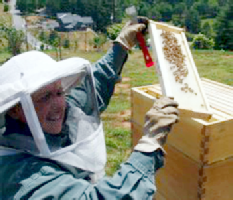
Checking the honey super…
The sweetest part of beekeeping.
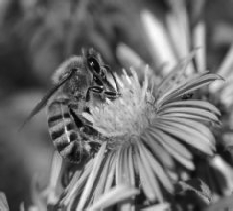
North Carolina state insect…
It may bee yours too.
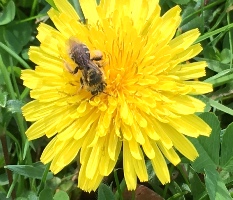
Honeybee working the dandelions.
NOTICE for any External Link Request on the
READ these criteria BEFORE emailing us about linking with your organization. If you DO NOT qualify, then your request will automatically be rejected for Failure to Follow Instructions!
The following criteria must “bee” met in order for consideration as a valid beekeeping resource link. Your business, organization, or school must primarily promote one these areas of beekeeping:
- Apiary Services, Apiculture, Beekeeping, Beekeeping Equipment or Supplies, Entomology, Honey Bee Pests or Honey Bee Treatments, Honeybee Gardens, Plants and Trees or Hardness Charts, Honeybee Research, Honey Hives and Inspections,
- Bee Clubs, State Beekeepers Associations, and Educational institutions involved with beekeeping or beekeeping research.
- Companies that manufacture beekeeping equipment, hives, supplies, or publish books about beekeeping, etc.
A one-page article on any “non-beekeeping or education” website that is not primarily about honeybees or beekeeping related events will not qualify for inclusion. We only link with websites that focus on those areas listed above.
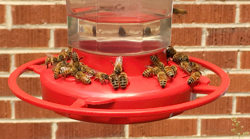
Honeybees sipping hummingbird food
at 4:1 ratio. If it’s sweet… they’ll eat it.
Moral: Buy bee-proof hummingbird feeders.
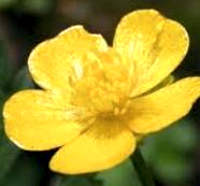
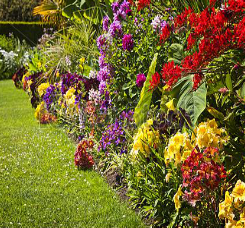
The Haywood County Bee Club has two available options for their members to access equipment to extract honey made by their bees. Several years ago the club received a grant that funded the equipping of a honey extraction facility. The equipment includes a "chain" uncapping machine and a 20-frame extractor. The beekeeper only needs to provide the honey combs and a container to catch the honey. Also, a portable 9-frame extractor is available for beekeepers to borrow on an as-needed basis. With this extractor comes a hot knife for uncapping. With either option, their are bins to catch the cappings, and honey strainers to filter out all the bee wings/legs/antennae that inevitably are in the honey otherwise.
To learn more or request the use of these items place contact call Allen Blanton at brotherallenapiary@gmail.com to schedule dates and time.
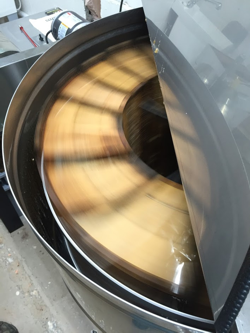




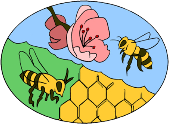
Membership Form













